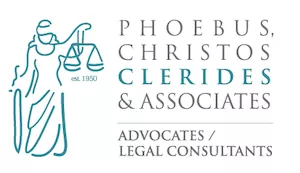- within Employment and HR topic(s)
- in European Union
- within Employment and HR topic(s)
- in European Union
- in European Union
- in European Union
- in European Union
- within Employment and HR, Family and Matrimonial and Real Estate and Construction topic(s)
In today's flexible work culture, many professionals—journalists, consultants, salespeople—operate under titles like "freelancer" or "partner." But is that really what the law sees?
The answer isn't always what's written in a contract. Courts and labor authorities look beyond labels to uncover the real nature of the relationship. So, how do they decide? Here's a practical legal guide to distinguishing between an employment relationship and independent service provision — based on principles drawn from Cypriot and Greek law, European directives, and well-established case law.
1. Substance Over Form
No matter what the contract says—"independent contractor," "associate," or "partner"—the law looks at what's actually happening in the working relationship. The true substance of the relationship outweighs its label.
2. The Core Legal Test
Is the person performing the work operating as a business on their own account?
- Yes: Independent contractor.
- No: Employee.
This central question reflects whether someone is truly autonomous or working under another's direction.
3. Key Indicators of Employment
While there's no single definitive list, courts consider the following:
- Control: Does the employer dictate how, where, and when the work is done?
- Resources: Who provides the tools, equipment, or workplace?
- Exclusivity: Is the person dedicated to one employer full-time?
- Integration: Is the person part of the organization's structure?
- Personal service: Must the person carry out the work themselves?
- Instructions & Supervision: Does the employer issue orders and monitor work?
- Fixed Remuneration: Is there a regular, agreed salary regardless of output?
Even if some elements suggest independence, the presence of control and subordination is often decisive.
4. Written Agreements Are Not Binding on Legal Classification
Even if a contract states "this is not a contract of employment," courts can disregard such clauses if the real working relationship shows otherwise. The law, not the wording, determines the nature of the relationship.
5. Fixed-Term Contracts: When They Turn into Permanent Employment
Under Cypriot law, if someone works under repeated or extended fixed-term contracts exceeding 30 months, the contract is legally presumed to be indefinite—unless the employer can prove valid, objective reasons (e.g. maternity cover, probation period, special projects).
6. The Principle of Personal Dependency
Another legal theory introduces the idea ofpersonal dependency as the ultimate test:
- The worker is bound to follow instructions;
- Their work is integrated into the employer's operation;
- They cannot delegate tasks;
- They are economically dependent and not running their own business.
This principle is especially important in professions with blurred lines—like journalism, sales, or remote consulting—where autonomy may appear greater than it truly is.
7. Real-World Example
Consider a foreign correspondent reporting daily for a news agency:
- Receives daily instructions,
- Reports to supervisors,
- Works exclusively for one agency,
- Has no control over hours or place of work,
- Uses company-provided tools and resources,
- Is paid a fixed monthly fee.
Even if the contract calls them a "freelancer," the reality clearly points to employment.
Conclusion: Look at the Facts, Not the Titles
The legal classification of a working relationship has huge implications—for labor rights, social insurance, termination protections, and more. Mislabeling a worker as "independent" can expose companies to liability and deny individuals their rightful protections.
Bottom line:
It's not about what the contract says—it's about what the relationship is.
The content of this article is intended to provide a general guide to the subject matter. Specialist advice should be sought about your specific circumstances.


